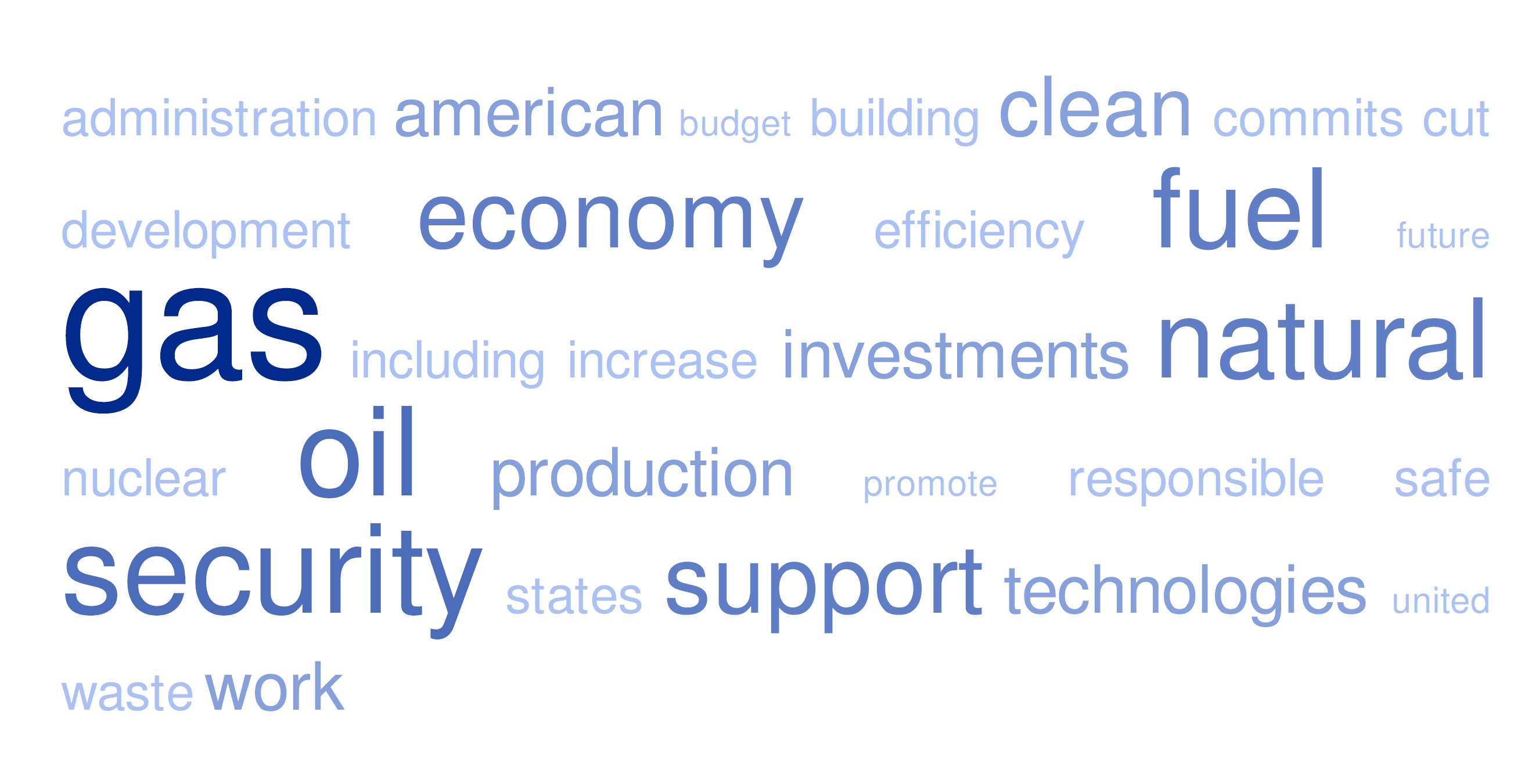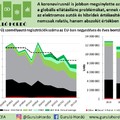‘The United States is on the path to a cleaner and more secure energy future’. But the President does not have much to do with that.
President Obama has just unveiled a “blueprint for a clean and secure energy future” for the US. The press reports noted that the controversial Keystone XL pipeline (which would bring Canadian and US shale oil to the Gulf) was not mentioned in the plan. But that was not the only thing missing.
For the lazy ones I created a word cloud of the document, which kind of says it all. Natural gas stands out, and so does oil – so do not expect any massive changes versus the status quo. Renewables did not make it to the buzz-words – the word ‘clean’ did, but that also seems to include natural gas. The plan intends to double solar, wind and geothermal in power generation by 2020 – this will probably happen anyway because of the low base and the fast drop in solar PV costs.
 Word cloud of the Energy blueprint, created at tagcrowd.com
Word cloud of the Energy blueprint, created at tagcrowd.com
Climate change is hardly mentioned at all. This is a bit of a buzzkill for green advocates, who hoped the president’s recent appointments of a new energy secretary as well as a new head for the Environmental Protection Agency (EPA) signaled a stronger commitment to fighting climate change in his second term.
Now it seems that if Obama is indeed considering taking any decisive action on the climate change front, he hides it pretty well. But I would be surprised if he did: the economy and jobs are still the number 1 topic (see economy in the word-cloud), so regulating emissions is not sexy at all. To put it differently, as things stand, China might have a carbon tax long before the US.
The US has recently been lucky when it comes to emissions: with the unconventional gas boom, gas has become cheaper than coal, pushing it out from power generation. This reduced overall CO2 emissions big time as a by-product. But this is not Obama’s merit. The plan seems to hope that this trend will continue.
The blueprint puts forward a Trust to promote technology development. That’s a welcome thing, research and development is really important to bring down the cost of CO2-abatement. Moreover, this is probably one of the few things where Democrats and Republicans agree (Romney’s energy plan also emphasized the promotion of R&D). However, the plan intends to spend only an additional USD 2 billion in 10 years – well that is hardly more than a drop in the ocean.
The plan also wants to promote energy efficiency: it wants to harness peer effects by launching ‘races to the top’ among states (instead of the EU’s silly command and control-type targets). One thing to note here is that having lots of cheap gas (and thus electricity) does not bode well for energy efficiency increases. But even with increasing energy use, pollution, including CO2 emission, will decline if gas continues to displace coal – so it is not clear if energy efficiency is a sensible overall goal in itself. Gas is the magic fuel that allows you to have it all: cheaper energy and lower pollution - at least for a while. Gas also might compete with oil in some uses – promoting alternatives to oil, like CNG or LNG in trucking appears to be a priority.
 Obama talks about American energy security, March 15. Source: whitehouse.gov
Obama talks about American energy security, March 15. Source: whitehouse.gov
This leads us to the evergreen topic of energy security, read ‘dependence on foreign oil’ (although the words dependence or independence are carefully avoided). As the blueprint boasts, foreign imports have been reduced and will shrink further. But that is because high oil prices and the economic slowdown have curbed demand, while tight oil has boosted production. The President’s actions hardly mattered at all – and that is likely to be the same in the future, grand plans notwithstanding.
So to summarize: US energy markets go where they want to go; prepare for more oil and gas and not much action (but some improvement as a by-product) on climate change.
A bejegyzés trackback címe:
Kommentek:
A hozzászólások a vonatkozó jogszabályok értelmében felhasználói tartalomnak minősülnek, értük a szolgáltatás technikai üzemeltetője semmilyen felelősséget nem vállal, azokat nem ellenőrzi. Kifogás esetén forduljon a blog szerkesztőjéhez. Részletek a Felhasználási feltételekben és az adatvédelmi tájékoztatóban.




